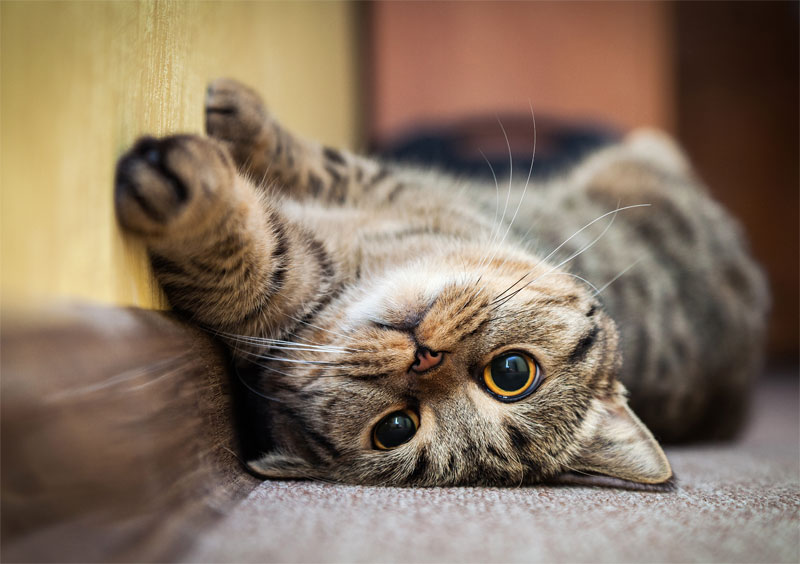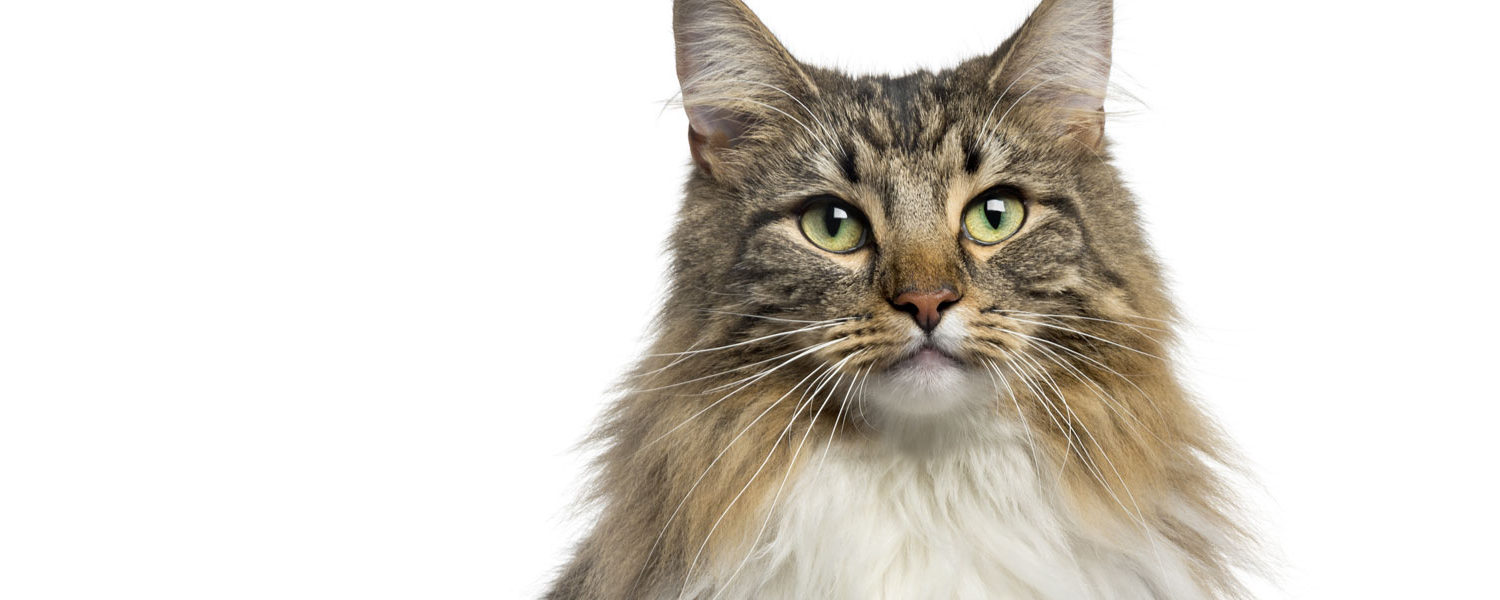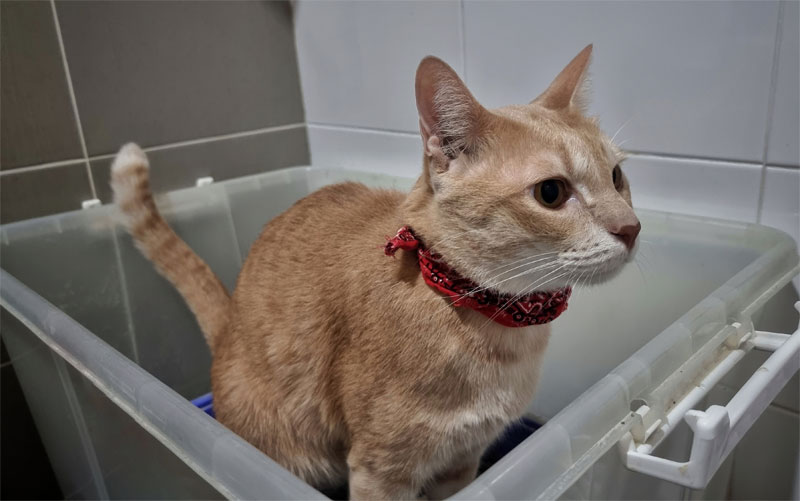
FLUTD stands for feline lower urinary tract disease. It is not a specific disease, but rather an umbrella term used to refer to a variety of diseases and conditions that can affect a cat’s lower urinary tract which includes the bladder and urethra. Depending on the underlying cause of FLUTD, the problem can sometimes affect a cat for life and require ongoing treatment and disease management.
Signs and Symptoms of FLUTD
FLUTD can be painful and irritating, so it is important to know what signs your cat may exhibit when they are experiencing pain in their lower urinary tract. If you see any of the following, it could mean your cat is struggling with FLUTD:
- Posturing to urinate for an extended amount of time
- Frequent visits to the litter box
- Tail wagging while attempting to urinate
- Non-productive litter box visits
- Excessive vocalization when urinating
- Blood in the urine
- Accidents outside of the litter box
- Multiple, small amounts of urine production
- Excessive grooming of the penis/vulva
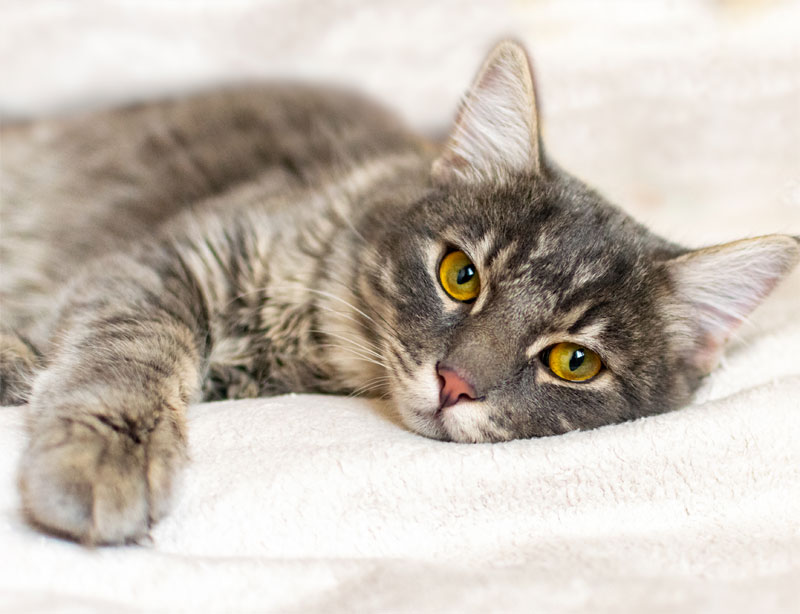
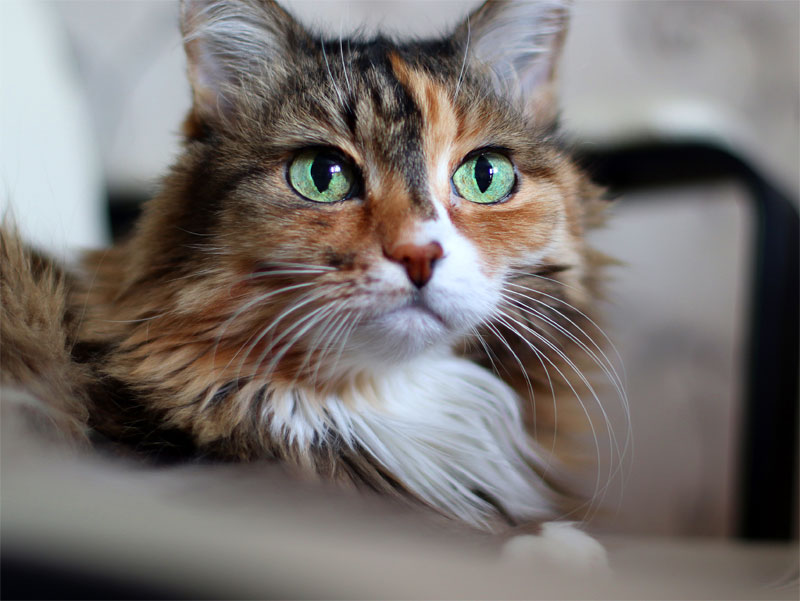
What Causes FLUTD?
Many underlying conditions can lead to problems with a cat’s urinary tract. Some of these include:
- Feline Idiopathic Cystitis (FIC) – sterile inflammation of the lining of the urinary tract
- Urinary Stones
- Bacterial Infections
- Tumors/Cancer
While all of these conditions cause inflammation and pain in the lower urinary tract, it is worth noting that Feline Idiopathic Cystitis (FIC) is by far the most common cause of FLUTD symptoms.
Testing for and Diagnosing FLUTD
The first step in diagnosing why your cat might be having urinary symptoms is to schedule an examination. Based on the history and examination findings, our veterinarians may recommend some of the following tests:
- Urinalysis
- Urine culture
- Bloodwork
- X-rays
- Ultrasound
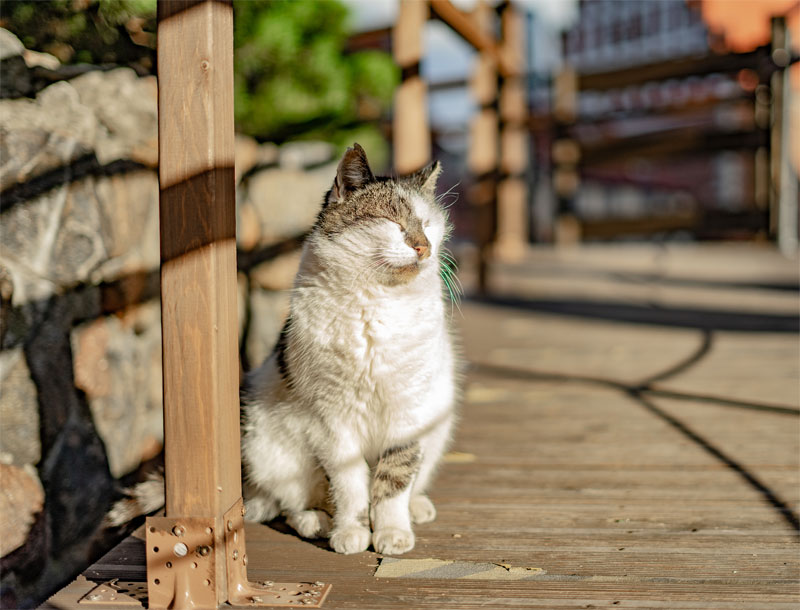
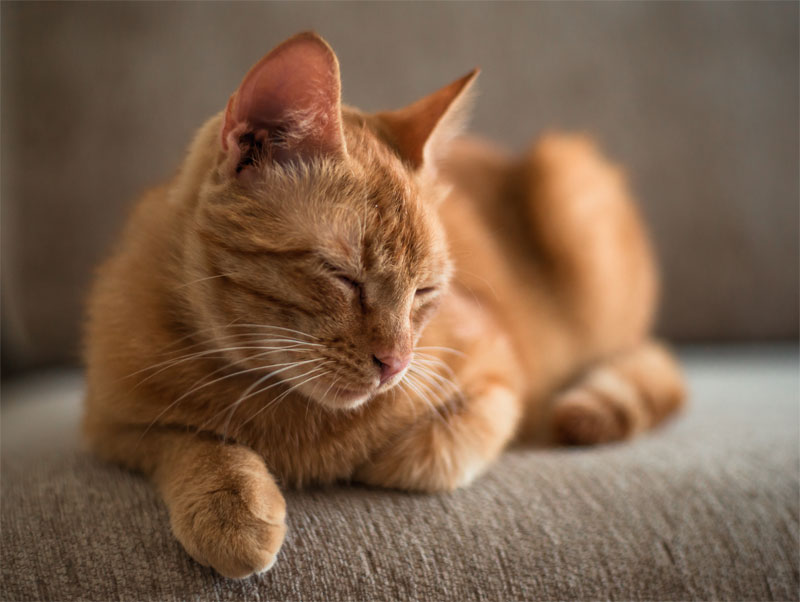
Urinary Tract Treatments for Cats
There are several treatments and therapies available for cats that struggle with FLUTD. The treatment or treatments that are right for your cat will, of course, depend on the specific underlying condition that is diagnosed.
Treatments might include:
- Pain medications
- Anti-spasm medications
- Anti-inflammatories
- Antibiotics
- Hospitalization or Surgery
- Prescription pet food for urinary health
- Environmental adjustments to reduce stress and increase enrichment
Feline Urinary Health and Personalized Veterinary Care in Sleepy Hollow
At Sleepy Hollow Animal Hospital, we strive to provide our feline patients with the highest level of veterinary care possible. With this in mind, we personalize each cat’s treatment plan based on their breed, gender, age, lifestyle, medical history and test results in order to provide them with the exact care they need.
Our veterinarians have a variety of treatment strategies available for cats that struggle with urinary health issues. After a thorough examination and the necessary diagnostic testing, we can recommend treatment and ongoing wellness and preventative care plans designed to keep your cat healthy and happy for life.
To learn more or to schedule an appointment with a veterinarian at Sleepy Hollow Animal Hospital, we welcome you to contact our office today.
